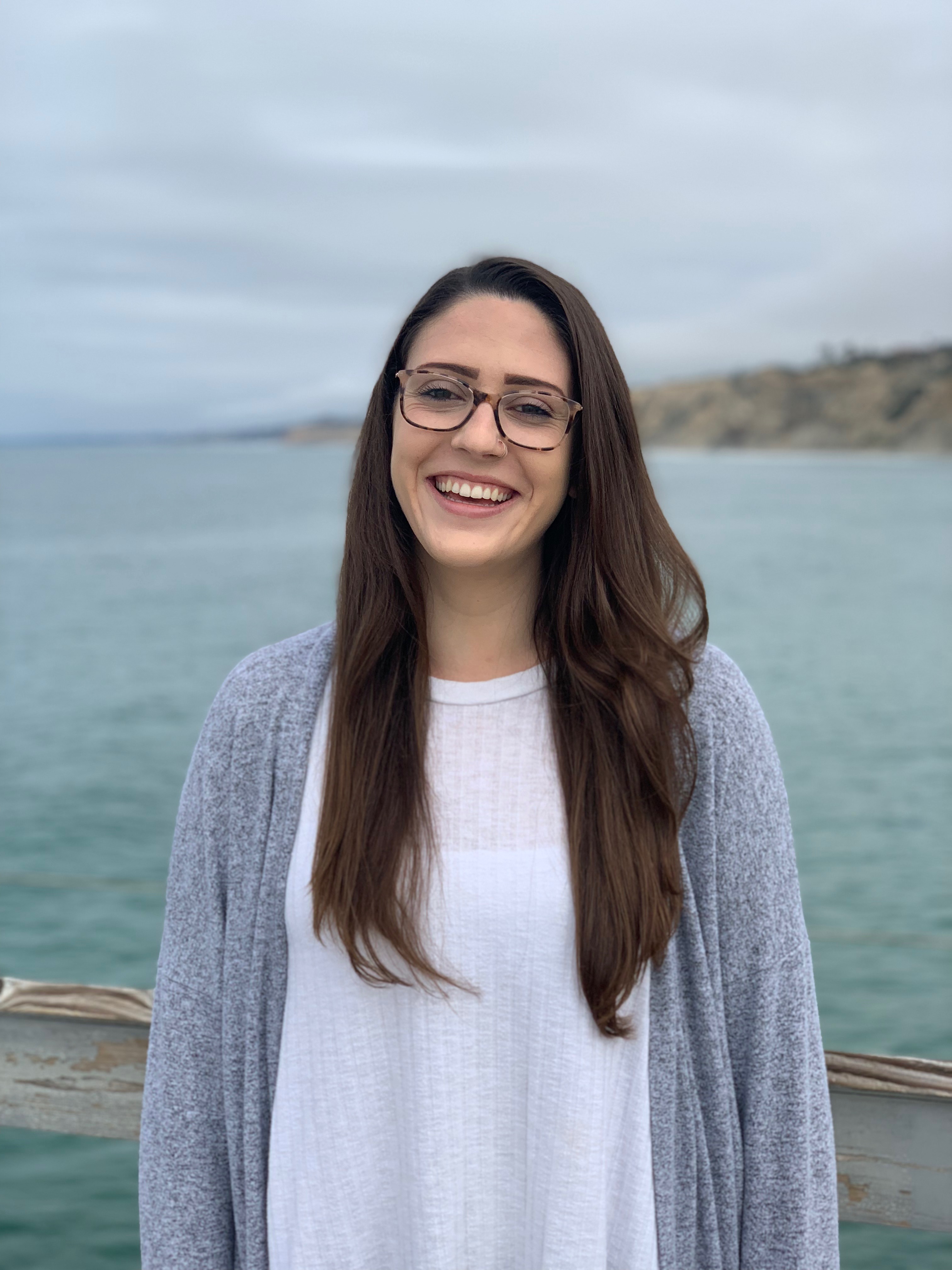Meet Kelly Mullane

Tell us a bit about your background: I grew up in Orange County and spent summers visiting family in San Diego, which is really where my love for the ocean and marine science began. As an undergrad at Rutgers University in New Jersey, I joined a lab that studied microorganisms from deep-sea hydrothermal vents. While I had zero microbiology experience at the time, I thought hydrothermal vents (which are basically underwater volcanoes) sounded super cool and I was curious to learn more. I ended up falling in love with the fields of extremophilic microbiology and astrobiology, which led me to the PhD program at Scripps Institution of Oceanography in 2016. In 2019, I completed my Masters in Marine Science.
What are you studying/researching? I am a 5th year PhD candidate in Dr. Douglas Bartlett's deep-sea microbiology lab within the Marine Biology program. While our lab traditionally studies high pressure adapted microbes from deep-sea trenches, my work has more broadly focused on extremophiles (microbes that live and thrive in extreme environments). As a PhD student, I've studied the impacts of deep-sea environmental conditions on hydrocarbon degrading bacteria from the Deepwater Horizon Oil Spill. I've also studied the microorganisms living in the Mariana Forearc Serpentinite Mud Volcanoes - an environment thought to be a potential location for the origin of life on Earth and of interest in the search for life elsewhere in our solar system.
Tell us about your professional experience and campus involvement at UC San Diego: I am a huge advocate for science communication and community engagement. In alignment with these interests, I am a coordinator and volunteer for the Scripps Community Outreach for Public Education (SCOPE) program, have helped organize the annual Scripps Student Symposium (S^3) since 2018, and am an active member of the Women and Minorities in Science (WMIS) group at Scripps. As a graduate student, I've also had the opportunity to train 9 undergraduate students, at least 5 of whom have gone on to join graduate programs.
Why UC San Diego? I chose Scripps Institution of Oceanography at UC San Diego because of the sense of community I felt when I visited during Open House. Not only are the scientists at Scripps working on some of the most cutting-edge environmental and oceanographic research out there, but they do it in a way that fosters collaboration and interdisciplinary research.
Have you been awarded any fellowships or grants during graduate school? If so, which ones? As a first-year student, I received the Albert C. and Elisabeth Boyer Fellowship Endowment through Scripps Institution of Oceanography. Then in 2019, I was awarded the Schlanger Ocean Drilling Fellowship from the U.S. Science Support Program and the Future Investigators in NASA Earth and Space Science and Technology (FINESST) Award from NASA.